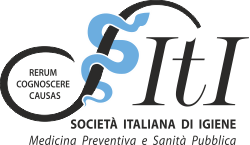In addition to observing the common hygiene norms, such as hand washing, which reduce the transmission of infection, vaccination is the best way to protect the child from the most serious forms of rotavirus disease.
The vaccine, obtained using viruses which are live but do not cause the disease, is taken orally and can be administered together with other vaccinations.
The vaccine will protect most children and almost all will be protected from severe forms; in fact the vaccines available today have shown an overall effectiveness greater than 80%, and a reduction in hospitalisation of up to 100%.
When to vaccinate
In Europe, two different rotavirus vaccines are available, to be administered orally (one in two doses, and the other in three doses). Doses are recommended (even in preterm babies) at the following ages:
For two doses:
- the first dose can be given from 6 weeks of age and no later than 10-12 weeks;
- the second dose should be administered after a minimum interval of 4 weeks
- the cycle must be completed within 24 weeks of age
For three doses:
- the first dose can be given from 6 weeks of age and no later than 10-12 weeks
- for subsequent doses there must be a minimum interval of 4 weeks
- the cycle must be completed within 32 weeks of age
Who cannot be vaccinated
Children who have had a severe allergic reaction to a previous dose of the rotavirus vaccine and children with immunological deficiencies (severe combined immunodeficiency (SCID), HIV/AIDS or other diseases affecting the immune system, prolonged treatment with drugs such as corticosteroids , neoplasms or chemotherapy or radiotherapy treatments for neoplasms).
Always inform your doctor if your child has had an intestinal intussusception or any type of intestinal block treated in hospital.
When to postpone vaccination
Children with mild illnesses (for example cold or cough) can be vaccinated. If, on the other hand, they have moderate or severe illnesses (including vomiting and diarrhoea), it is advisable to delay vaccination until they have recovered.
Vaccination risks
Un vaccino, come qualunque altro farmaco, può causare effetti avversi, come le reazioni allergiche; tuttavia il rischio che un qualunque vaccino provochi un danno grave è minimo. La maggior parte dei bambini vaccinati non presenta alcun tipo di problema.
Minor problems
Dopo una dose di vaccino i bambini possono mostrare irritabilità, perdita di appetito o avere un episodio lieve e transitorio di febbre, diarrea e/o vomito.
Serious problems
A recent review of clinical studies has shown that, unlike the old vaccines, the vaccines currently in use have not led to an increased risk of intestinal intussusception.
Intestinal intussusception is a form of intestinal blockage that must be treated in hospital and sometimes requires surgical intervention. The estimated risk is about 1 case per 100,000 infants.
Sources / Bibliography
- GIAQUINTO C, VAN DAMME P, HUET F, GOTHEFORS L, VAN DER WIELEN M; REVEAL STUDY GROUP. Costs of community-acquired pediatric rotavirus gastroenteritis in 7 European countries: the REVEAL Study. J Infect Dis. 2007 May 1;195 Suppl 1:S36-S44.
- VAN DAMME P, GIAQUINTO C, HUET F, GOTHEFORS L, MAXWELL M, VAN DER WIELEN M; REVEAL STUDY GROUP. Multicenter prospective study of the burden of rotavirus acute gastroenteritis in Europe, 2004-2005: the REVEAL study. J Infect Dis. 2007 May 1;195 Suppl 1:S4-S16.
- GIAQUINTO C, VAN DAMME P, HUET F, GOTHEFORS L, MAXWELL M, TODD P, DA DALT L; REVEAL STUDY GROUP. Clinical consequences of rotavirus acute gastroenteritis in Europe, 2004-2005: the REVEAL study. Infect Dis. 2007 May 1;195 Suppl 1:S26-35.
- LEUNG AK, KELLNER JD, DAVIES HD. Rotavirus gastroenteritis. Adv Ther 2005; 22:476–87.
- CLARK HF, OFFIT PA. Vaccines for rotavirus gastroenteritis universally needed for infants. Pediatr Ann 2004; 33:536–43.
- CLARK B, MCKENDRICK M. A review of viral gastroenteritis. Curr Opin Infect Dis 2004; 17:461–9.
- PARASHAR UD, GIBSON CJ, BRESSE JS, GLASS RI. Rotavirus and severe childhood diarrhea. Emerg Infect Dis. 2006 Feb;12(2):304-6.
- JIT M, EDMUNDS WJ. Evaluating rotavirus vaccination in England and Wales. Part II. The potential cost-effectiveness of vaccination. Vaccine. 2007 May 16;25(20):3971-9. Epub 2007 Mar 13



